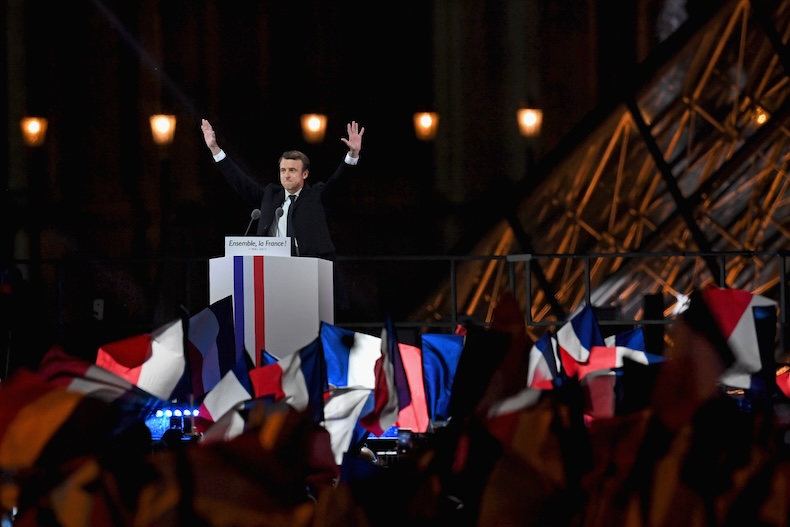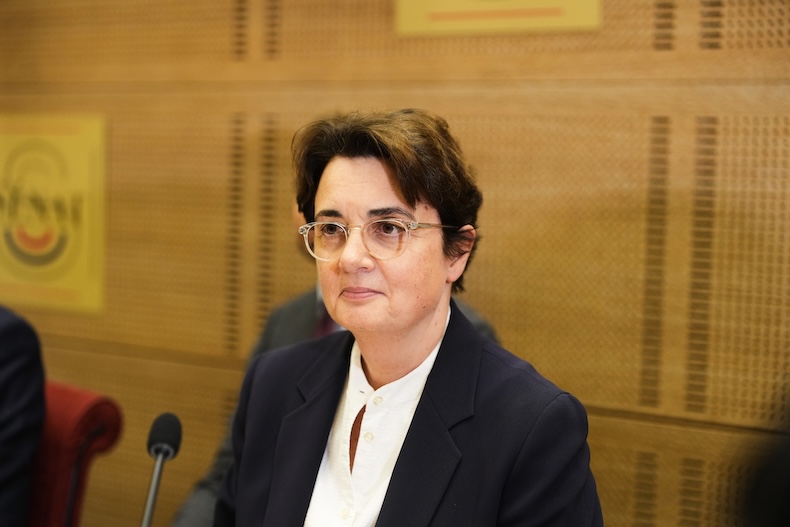Before the theft took place, few people knew or cared about the 19th-century jewels stolen from the Louvre on 19 October. The Galerie d’Apollon, though much visited, is mostly admired for its baroque architecture. The crown jewels and hardstone vessels it contains are considerably less famous. As Le Monde editor and columnist Michel Guerrin writes, ‘One doesn’t go to the Louvre for tiaras, brooches, necklaces, earrings. One goes for Leonardo da Vinci, Poussin, Delacroix, Géricault. For Vermeer. For Egyptian and Islamic art.’
The heist of the jewels belonging to the Empress Marie-Louise and the Empress Eugénie inevitably raises questions about the state of the world’s most visited museum and, as yet another catastrophe befalls the end of Macron’s presidency, it also raises questions about the state of France.
Since the French president dissolved the National Assembly in June last year, three governments have collapsed and the current one has just narrowly won two votes of no-confidence. Despite calls for his resignation, Macron is still clinging to power and to symbols of power such as the Louvre, which he chose as the backdrop for his victory speech eight years ago. Hours after the theft the president tweeted: ‘The theft committed at the Louvre is an attack on a heritage that we cherish because it is our History.’ Macron promised that the jewels would be found and the culprits brought to justice.

Culture minister Rachida Dati, a centre-right politician and former Sarkozy ally who is running to be mayor of Paris in the 2026 elections – despite being charged with corruption and influence-peddling – told lawmakers at the National Assembly that ‘the Louvre Museum’s security apparatus did not fail’. You had to listen to what the director of the Louvre, Laurence des Cars, told the Senate’s culture commission to get a more nuanced picture. The art historian, who was head of the Musée d’Orsay before she was appointed director of the Louvre in 2021, told senators that she had submitted her resignation, which was refused by the culture minister. She confirmed that the museum’s security apparatus had worked but conceded that it was outdated, not fit for purpose in the face of changing threats.
Des Cars also told senators that she had been ‘appalled by the security situation at the Louvre when (she) arrived’ and had repeatedly tried to alert the culture ministry and the media about the museum’s weaknesses. Her controversial predecessor, Jean-Luc Martinez, who was director of the Louvre between 2013 and 2021, is currently fighting charges of complicity in fraud and money laundering. Critics accused Martinez of focusing too much on special events and publicity, rather than caring for the museum’s collection.
Des Cars told senators that the Louvre, which covers 73,000 square metres, was ‘an institution overwhelmed by its success’, which had ‘ceased to function as a great 21st century museum’. As des Cars previously told AFP, according to polls conducted by the museum, 80 per cent of the Louvre’s 9 million visitors come to see the Mona Lisa, while entire parts of the museum remain empty. ‘We must make the Louvre breathe again,’ des Cars said.

While answering questions about what happened, the Louvre director also defended the proposed renovation of the museum. Last January, after the leak of a letter by des Cars alerting the culture minister about the state of the museum, Macron gave a press conference at the Louvre, where, in front of the Mona Lisa, he announced the launch of the ‘Louvre – Nouvelle Renaissance’ project, a massive overhaul of the museum that includes the creation of a new entrance which would prevent overcrowding under the sole entrance via the glass pyramid, as well as the creation of a new dedicated room for the Mona Lisa, underground.
With the cost estimated at €800 million, the overhaul would be almost entirely funded ‘by the museum’s own resources’, Macron claimed. (The project, it must also be noted, bears the name of his party.) The last large-scale renovation project at the museum, Le Grand Louvre, which saw the creation of a glass pyramid designed by I.M. Pei, was initiated by François Mitterrand in 1981 and became one of the emblems of his presidency.
Des Cars claims that the Nouvelle Renaissance project will bring much needed structural changes. It should be funded by an increase in ticket prices for non-EU visitors, the licence fee from the Louvre Abu Dhabi and international sponsorship. She says she plans to double the number of French high-school visitors to the museum.
Museum workers and union representatives have a fraught relationship with des Cars. They went on strike last June to denounce the dilapidation of the building and the strain that overtourism and understaffing put on their working conditions. Some, like visitor assistant and union representative Elise Muller, claim that the museum management’s excessive focus on special events such as the Grand Dîner, a fundraiser inaugurated last March,has been to the detriment of the museum’s real mission: protecting the museum, its collections and the public. Speaking to Sud Radio, Muller said: ‘This requires investments and personnel with expertise. 15 per cent of jobs in the sector have been cut over the last 10 years.’ For Muller, listening and valuing the expertise of people who work at the Louvre is what’s needed, rather than using the museum’s difficulties to launch a new pharaonic project.
In France’s budget for 2026, should it ever be passed – it is currently being debated in Parliament again – the culture ministry’s funds will be cut by 200 million euros. These cuts will continue to put museums and their collections at risk, and we may keep on being alerted to the importance of certain artefacts – such as the gold samples recently stolen from the Natural History Museum in Paris and the Chinese porcelain taken from a museum in Limoges – only once they are gone.
